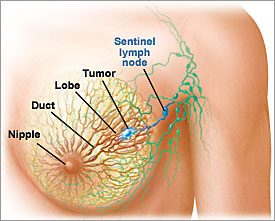Decision Analysis in Breast Cancer Patients
Study Personnel
Principal Investigators: Anees Chagpar, M.D., Jamie L. Studts, Ph.D., Kelly McMasters, M.D.
Study Coordinator: S. Denise Thomas
Graduate Students: N/A
Study Synopsis
 Due to the wide array of treatment options for breast cancer, treatment decisions have become increasingly challenging and complex. In addition to the trend of providing more comprehensive information to women regarding options for breast cancer care, a movement toward women playing a greater role in selecting their own treatment regimen has emerged. Research in this area has shown that women tend to have improved psychosocial outcomes when they have played a more significant role in determining the types of treatments they will receive.
Due to the wide array of treatment options for breast cancer, treatment decisions have become increasingly challenging and complex. In addition to the trend of providing more comprehensive information to women regarding options for breast cancer care, a movement toward women playing a greater role in selecting their own treatment regimen has emerged. Research in this area has shown that women tend to have improved psychosocial outcomes when they have played a more significant role in determining the types of treatments they will receive.
Unfortunately, very little research has been conducted to clarify the factors that influence a patient’s decision to take adjuvant chemotherapy, yet, numerous methods, called decision aids, have been developed to facilitate the decision-making process. Without basic behavioral science research and theoretical development, the development of decision aids is somewhat premature.

 Facebook
Facebook Twitter
Twitter Linkedin
Linkedin